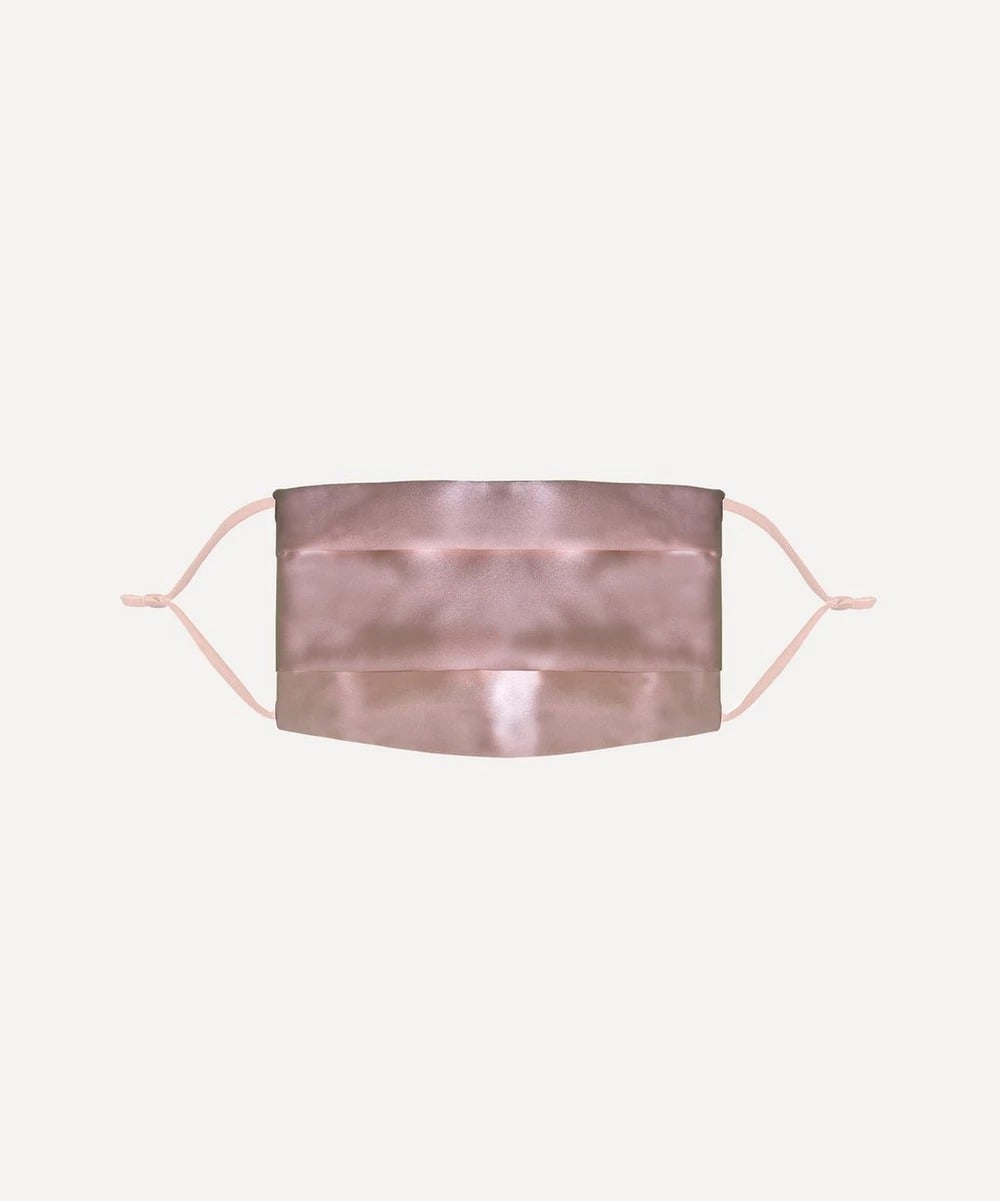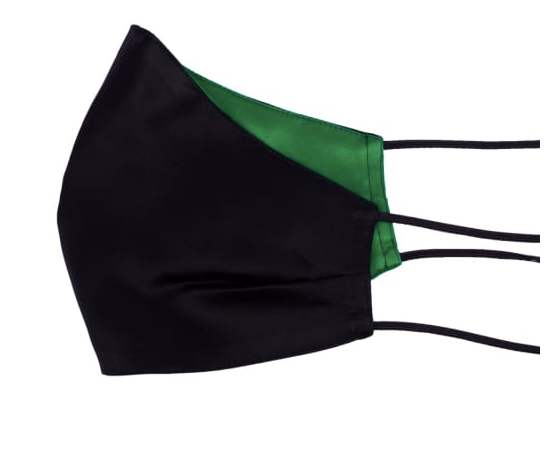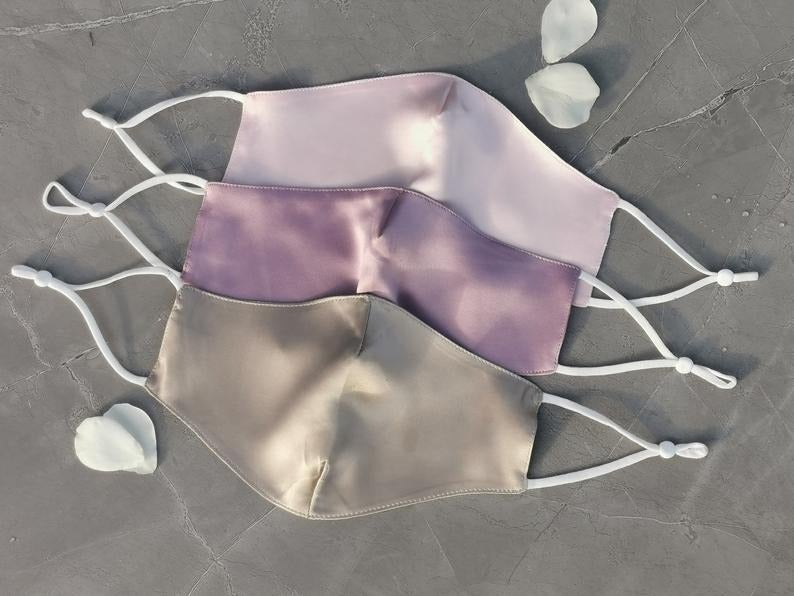Since face masks became mandatory in a number of indoor settings to help prevent the spread of coronavirus in the UK, more people have discovered how to make their own fabric versions. Etsy in particular has seen a boom in demand. There, you'll find face masks with filter pockets, pretty printed face masks, layered masks made from 100% cotton and masks contoured with wire inserts for a better fit. But it's the silk variety which is gaining popularity.
The World Health Organization (WHO) currently lists a handful of different types of recommended face masks. It states that medical masks (disposable, often blue masks usually worn by health professionals) should be worn by those with underlying health conditions and people over the age of 60. Fabric masks are known as non-medical masks and WHO says they should be worn by people who have no COVID-19 symptoms in places where COVID-19 is widespread or in instances where it is not possible to socially distance. They are especially important if you are in close contact with people, such as on public transport or while shopping, and must be worn over the mouth and nose to be effective.
AdvertisementADVERTISEMENT
While silk fabric face masks might be a new thing, the luxe material is big in the beauty industry right now. Hair experts recommend silk bonnets or turbans for protecting hair types prone to damage, tangling and drying out. Skin professionals also champion silk pillowcases for minimising creasing and friction on the skin. But are silk face masks as beneficial? And are they effective against potential transmission of coronavirus compared to other materials?
"Silk masks have been shown to be an effective mask while also preventing facial irritation," says Dr Howard Sobel, MD, founder of Sobel Skin and attending dermatologist and dermatologic surgeon at Lenox Hill Hospital, New York. "It has been discovered that high thread count cotton and natural silk can effectively filter out particles."
With maskne (aka acne caused by face masks) on the rise, perhaps silk is a better option than cotton or other thicker materials when it comes to skin. "Maskne causes breakouts due to the combination of friction, heat, moisture and clogged pores," says Dr Sobel. "If you haven't already experienced maskne, you very likely could, as spending more time outdoors mixed with heat, humidity, sunscreen, facial products and makeup can cause breakouts."
Dr Sobel goes on to list the benefits of silk face masks. "They are especially beneficial if your skin is sensitive," he says. "Certain mask materials can cause issues because some textures can be irritating and leading to spots," Dr Sobel adds, but silk is a material that is less likely to cause problems. "Silk is cooling, naturally hypoallergenic (unlikely to cause an allergic reaction) and tends to absorb less moisture than cotton, so it won't dry out your skin," continues Dr Sobel. "100% silk does not clog pores, so finding a mask like this is an added benefit," especially if you have oily or acne-prone skin.
While Dr Sobel says that silk face masks are considered better for your skin for preventing skin bugbears such as maskne, he points out that it is important to remember mask hygiene plays an important part in skincare and overall health. "Wash your mask after each use, make sure your mask is completely dry before wearing it and change your mask right after you sweat in order to fully prevent breakouts," says Dr Sobel.
The World Health Organization says you can protect yourself by washing your hands, covering your mouth when sneezing or coughing (ideally with a tissue), avoid touching your eyes, nose and mouth and don't get too close to people who are coughing, sneezing or with a fever.


